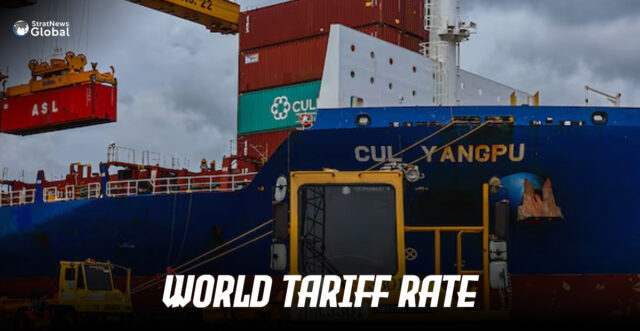President Donald Trump announced on Monday that most trading countries failing to negotiate individual trade agreements with the United States would soon face export tariffs ranging from 15% to 20%, significantly higher than the broad 10% tariff he imposed in April.
Trump told reporters his administration will notify some 200 countries soon of their new “world tariff” rate.
“I would say it’ll be somewhere in the 15 to 20% range,” Trump told reporters, sitting alongside British Prime Minister Keir Starmer at his luxury golf resort in Turnberry, Scotland. “Probably one of those two numbers.”
Trump, who has vowed to end decades of U.S. trade deficits by imposing tariffs on nearly all trading partners, has already announced higher rates of up to 50% on some countries, including Brazil, starting on Friday.
The announcements have spurred feverish negotiations by a host of countries seeking lower tariff rates, including India, Pakistan, Canada, and Thailand, among others.
Trade Deal With EU
The U.S. president on Sunday clinched a huge trade deal with the European Union that includes a 15% tariff on most EU goods, $600 billion of investments in the U.S. by European firms, and $750 billion in energy purchases over the next three years.
That followed a $550-billion deal with Japan last week and smaller agreements with Britain, Indonesia, and Vietnam. Other talks are ongoing, including with India, but prospects have dimmed for many more agreements before Friday, Trump’s deadline for deals before higher rates take effect.
Trump has repeatedly said he favours straightforward tariff rates over complex negotiations.
“We’re going to be setting a tariff for essentially, the rest of the world,” he said again on Monday. “And that’s what they’re going to pay if they want to do business in the United States. Because you can’t sit down and make 200 deals.”
Canadian Prime Minister Mark Carney said on Monday trade talks with the U.S. were at an intense phase, conceding that his country was still hoping to walk away with a tariff rate below the 35% announced by Trump on some Canadian imports.
Carney conceded this month that Canada – which sends 75% of its exports to the United States – would likely have to accept some tariffs.
(With inputs from Reuters)





